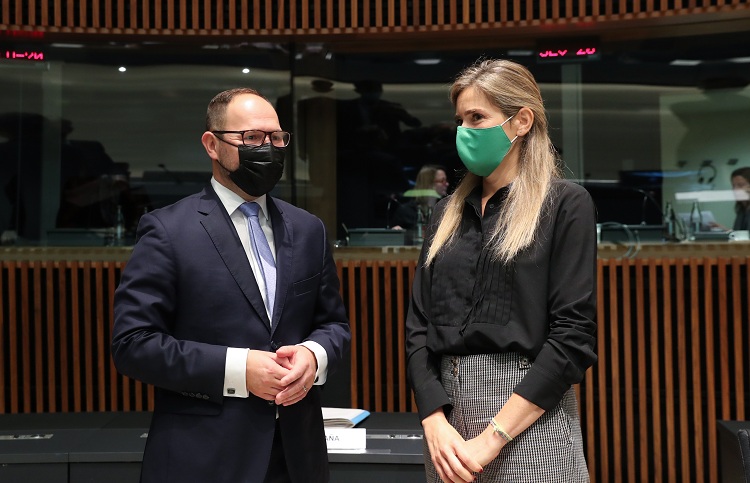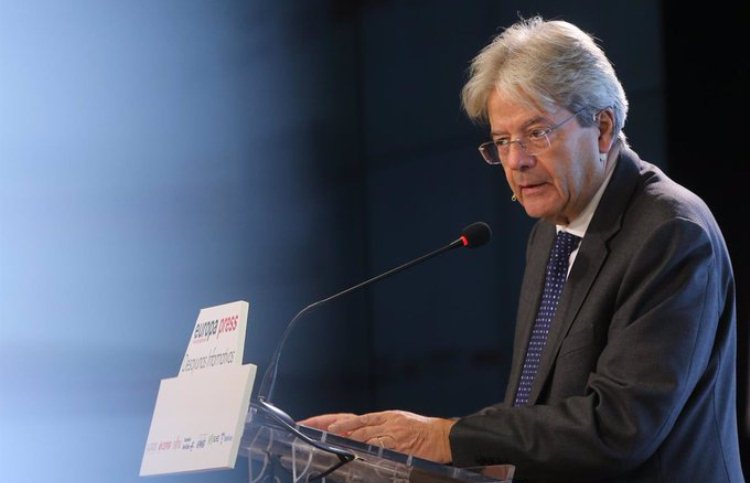Eduardo González
The Spanish government went to Luxembourg yesterday with new proposals to curb the escalating price of electricity, but the Commission merely warned that these ideas do not seem the “best alternative” and energy ministers again postponed any final decision on an issue that clearly divides Member States.
The Council of EU Energy Ministers yesterday limited itself to acting as a transmission belt between two European Councils, the one last week, in which European leaders agreed to refer any decision to yesterday’s Energy Council itself, and the next one, scheduled for December 16 and 17. In the debates, Spain only had the support of the countries of the South and the open rejection of a dozen countries (Germany, Austria, the Netherlands, Denmark, Finland, Estonia, Ireland, Luxembourg, Latvia, Sweden and Belgium) which this very week opposed, by means of a joint declaration, any in-depth reform of the European energy system.
After Pedro Sánchez’s failed attempt last week to convince the other leaders of the need to adopt “European” solutions based on the Spanish government’s first proposal -which included the centralization of the purchase of natural gas in order to create a strategic reserve and contain electricity prices and measures against speculation in the CO2 market-, the Spanish government, represented by the Spanish government, represented by the Spanish Presidency of the Council of the European Union and the European Commission, has decided to adopt a joint declaration against any deep reform of the European energy system, the Spanish government, represented by the Secretary of State for Energy, Sara Aagesen, came forward yesterday with new proposals including the replacement of the current pricing system, based on the cost of gas, with another based on the cost of renewable energies. The objective of these “extraordinary and urgent measures that Spain believes must be approved here and now”, according to the document delivered on Monday to the European Commission, is that the price of electricity should be “directly linked to the national production mix”.
After learning of the Spanish proposal, the Commissioner for Energy, Kadri Simson, said yesterday at the press conference following the meeting in Luxembourg that the Commission will analyze this document, but warned that “it is not entirely clear how a system with prices for the different energy sources would work in practice or whether it would be a better alternative than the current design of the electricity market”. For his part, the European Commissioner for the Economy, Paolo Gentiloni, declared yesterday in Madrid, during the Europa Press Breakfast Briefings, that the measures adopted by the countries to curb the impact of the rise in wholesale prices on the electricity bill must be “temporary and concrete” and “respect the single market”. It also attributed the rise in energy prices to the increase in global demand as a result of the world economic recovery.
Finally, yesterday’s Energy Council concluded with a statement in which the ministers again praised the proposals presented in mid-October by the Commission, which shelved any decision on joint gas purchases and called on Member States to adopt “useful” measures to improve the situation of the most vulnerable consumers and companies.
They also urged investment in “renewable energy sources and new technologies” to “increase the resilience of EU energy systems” (“green transition is not the problem, it is part of the solution,” said Slovenian Infrastructure Minister Jernej Vrtovec, whose country holds the rotating presidency of the Council. “We want to achieve two important goals: climate neutrality and an energy independent Europe, and for that we have to invest in renewable energy sources and new technologies,” he added) and called for a stock next December on the evolution of energy prices and the progress made in implementing the measures contained in the Commission’s proposal. “The Energy Council will prepare the grounds for the December European Council where EU leaders will revert to the issue of energy prices”. the statement concluded.







